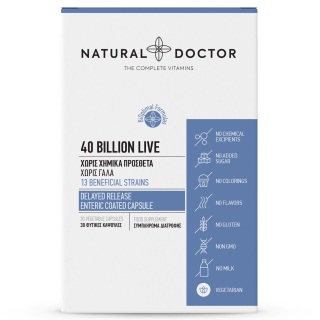Deficiencies in vitamins, minerals and anti-inflammatory micronutrients, combined with insulin resistance, negatively affect the body's ability to manage inflammation and worsen the health course of patients with chronic inflammatory diseases such as autoimmune diseases.
Often, these deficiencies are not detected in time, remaining undiagnosed for a long time. Symptoms that plague patients include increased joint pain, muscle cramps, decreased energy levels, weight gain and mood swings.
Autoimmune diseases are characterised by a dysregulation of the immune system, which attacks healthy body tissues, causing inflammation in organs such as the skin, kidneys, blood vessels and joints. Lifestyle, body deficiencies and diet play a key role in the development and progression of this category of diseases, as well as in the failure to manage chronic inflammation.
Vitamin Deficiencies that Worsen Chronic Inflammation
- Vitamins: Deficiencies in vitamins such as D, C, B1, B5, B6, A, E and inositol deregulate the immune system. These vitamins play an important role in regulating the immune system, energy production and mood stabilization. Their deficiency is often associated with chronic inflammation, low energy and difficulties in weight management.
- Mineral Elements: Inadequate intake of minerals such as zinc, selenium, magnesium, potassium and iron affects the body's ability to resolve inflammation. In addition, it leads to gastrointestinal disorders and can cause fatigue, reduced mental clarity and mood swings.
- Fatty acids: Excessive consumption of processed omega-6 fats and trans fats, combined with a lack of omega-3 fatty acids, weakens inflammation management mechanisms. Improving the ratio of omega-6 to omega-3 fats has significant benefits for inflammation regulation and overall health.
Metabolic Factors that Exacerbate Chronic Inflammation
- Resistance to Insulin: This is a common metabolic disorder in patients with autoimmune diseases and is associated with fatigue, joint pain, mood swings and increased inflammation. Chronic insulin resistance disrupts normal immune function and increases the risk of other conditions such as cardiovascular disease and diabetes.
- Microbiome Disorder. Disruption of the microbiota affects gastrointestinal function and is often associated with symptoms such as constipation, abdominal distention and low nutrient absorption.
- Difficulty in managing inflammation: In people with autoimmunity, chronic inflammation is accompanied by symptoms such as swelling, chronic pain, exhaustion, low mood and decreased mental clarity. Restoring the inflammatory balance is critical to improving health.
Changes that Can Bring About Improvement
- Assessing and correcting deficiencies. Targeted remediation of deficiencies can help reduce inflammation and improve overall health. Taking individual nutrients alone is not sufficient to bring about significant clinical changes, as micronutrients act synergistically. For best results, the administration of any nutrient should be accompanied by a quality multivitamin, including a full spectrum of vitamins, minerals and trace elements.
- Nutritional Interventions: Eating foods rich in antioxidants, vitamins and omega-3 fatty acids, such as red meat, oily fish, olive oil, nuts and vegetables, enhances the body's physiological functions. Avoiding processed foods and trans fats is equally important.
- Strengthening the gut microbiome: Incorporating probiotics and prebiotics into the diet, such as yogurt and kefir, helps maintain gut health by boosting overall immune system function.
- Stress management and improved sleep: Chronic stress and sleep disorders often plague patients with chronic inflammation. Walking, stopping alcohol and taking magnesium help improve sleep quality.
- Exercise and physical activity: Regular exercise such as walking or swimming supports immune system function and helps improve overall health.




















